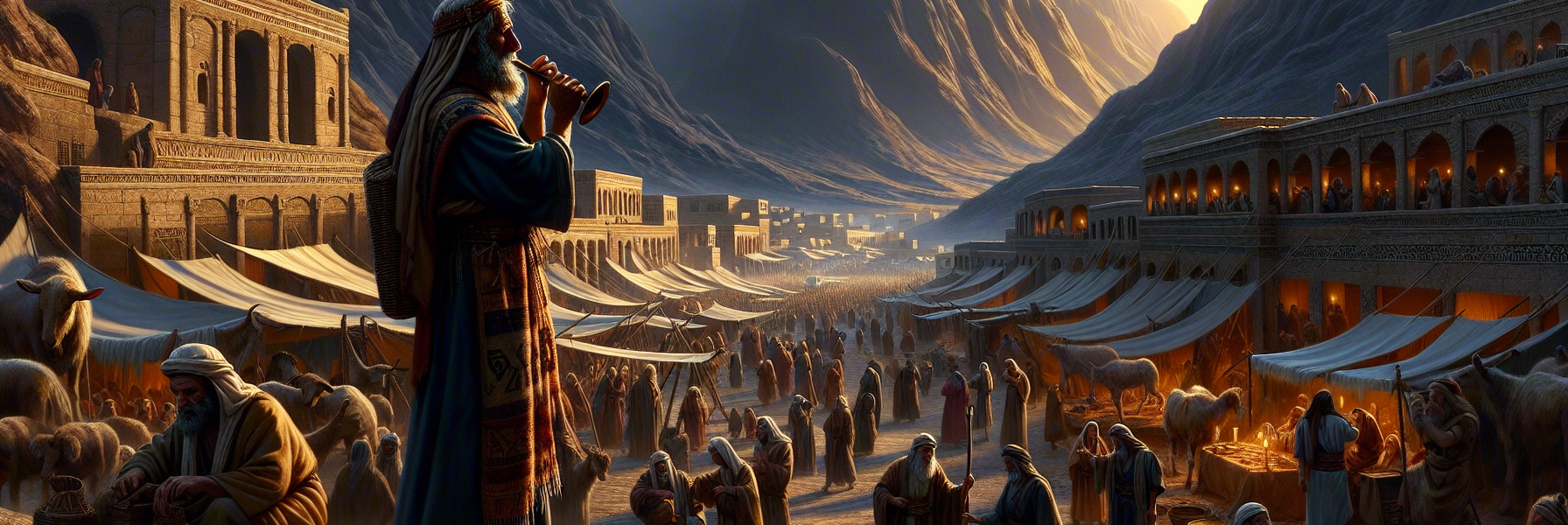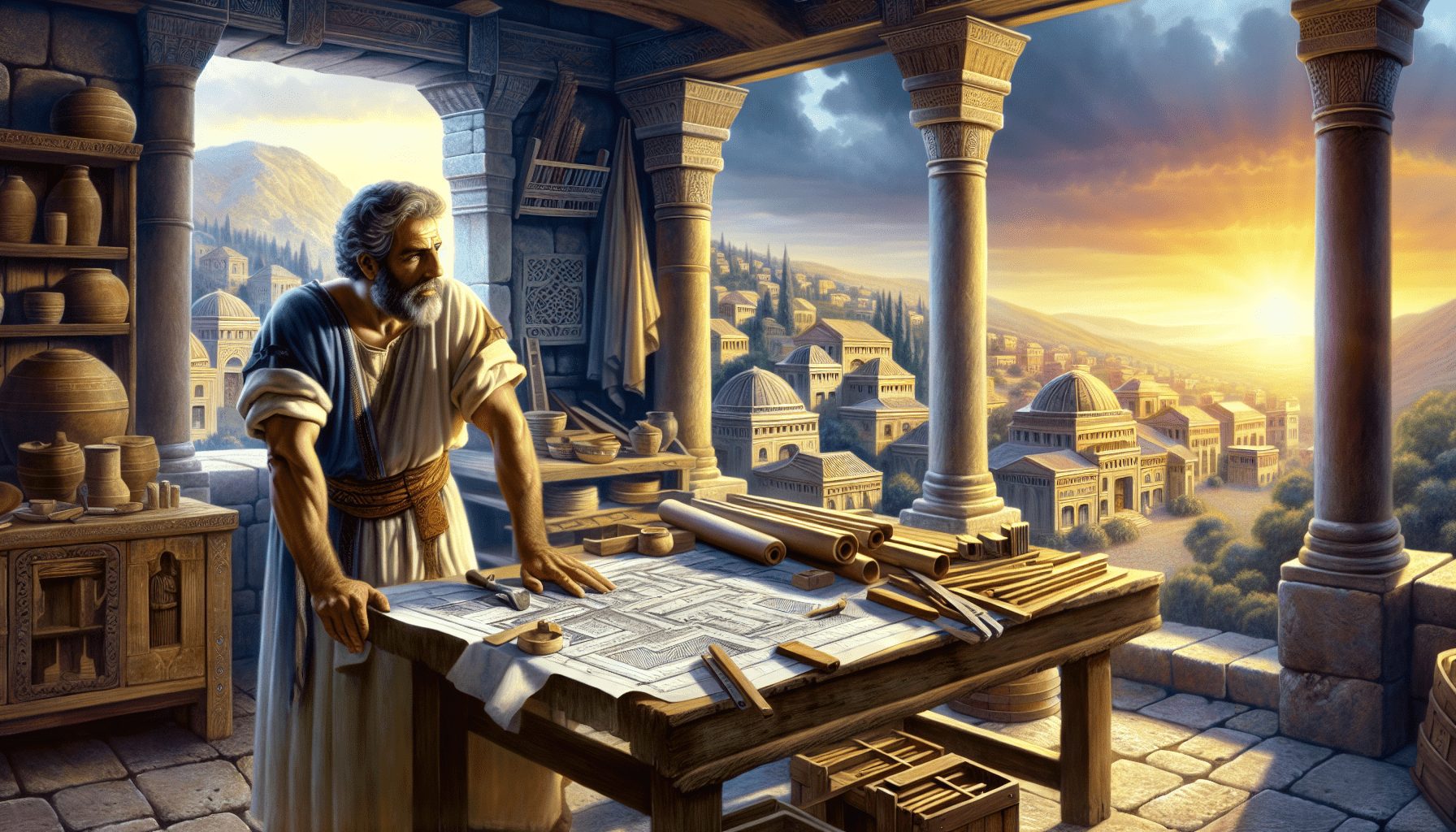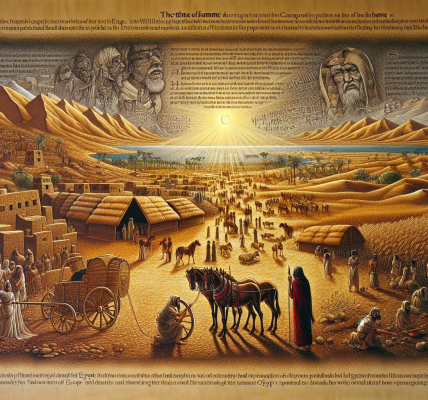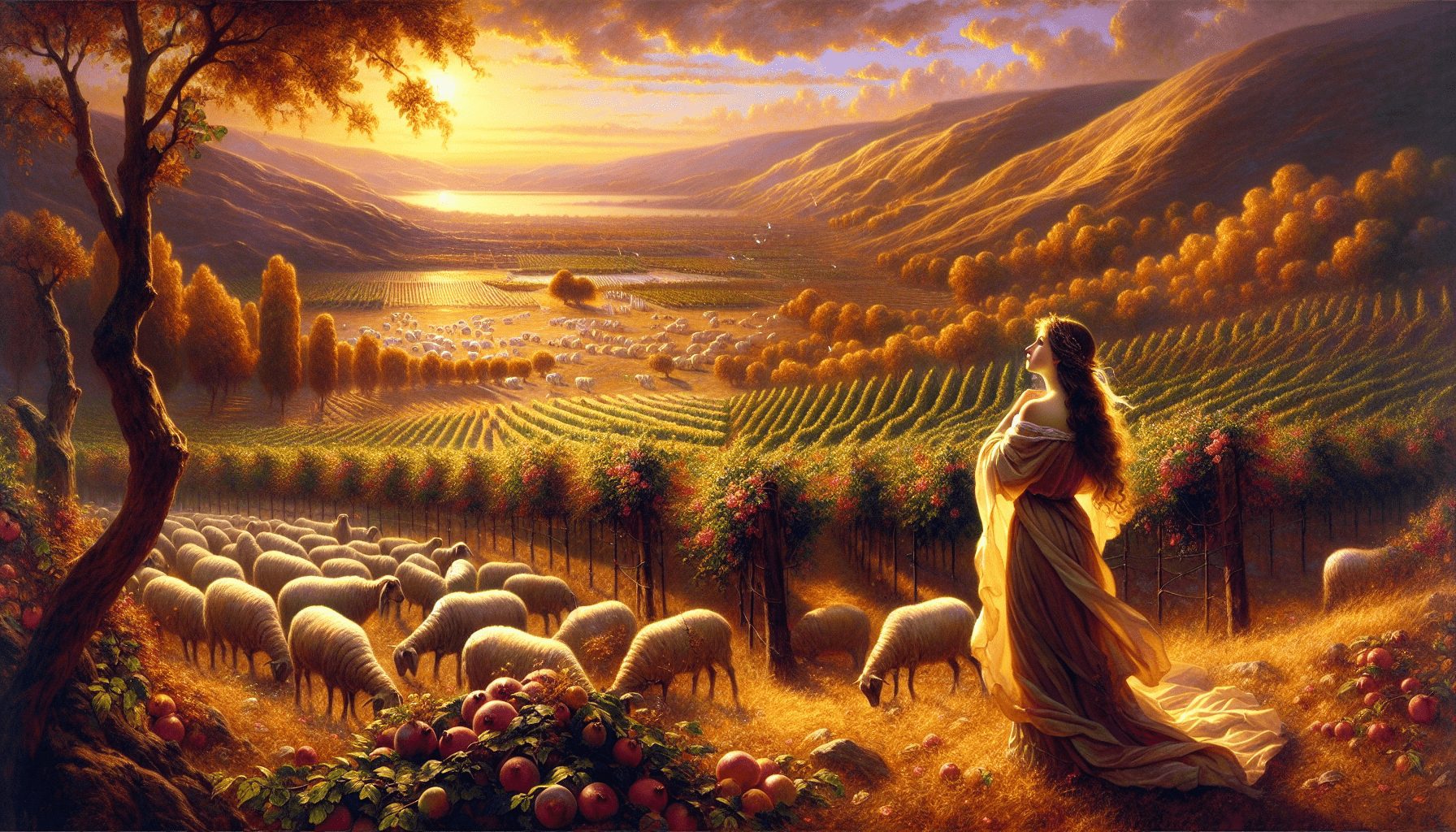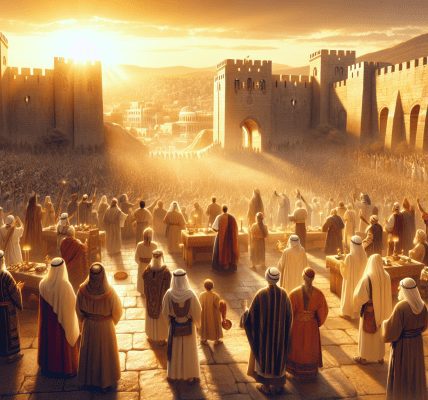**The Plumb Line of God: A Vision of Judgment and Mercy**
The sun hung low over the northern hills of Israel, casting long shadows across the rugged terrain of Bethel. The air was thick with the scent of dry earth and the faint murmur of merchants closing their stalls. In the midst of this bustling city, where golden idols gleamed in the fading light, a shepherd from the southern hills of Tekoa stood with a heavy heart. His name was Amos, a man of the flock, called by the Lord to speak words that few wished to hear.
For days, Amos had walked among the people, his voice rising above the noise of feasts and market squares. He spoke of justice, of the oppressed groaning under the weight of greed, of widows and orphans crying out while the wealthy lounged on ivory couches. But the people of Israel had grown deaf, their hearts hardened by years of prosperity that had twisted into arrogance.
### **The Locusts and the Fire**
One evening, as Amos knelt in prayer, the Lord gave him a vision. He saw the fields of Israel lush with young shoots, the first tender growth after the king’s harvest. But then, from the east, a great swarm of locusts descended, their wings a deafening roar as they devoured every green thing in their path. The land was stripped bare, leaving nothing but desolation.
Amos cried out, *”Sovereign Lord, forgive! How can Jacob survive? He is so small!”*
And the Lord relented. *”This will not happen,”* He declared.
Yet another vision came—a fire so fierce it consumed the great deep and licked at the fields. The flames roared like a furnace, turning the earth to ash. Again, Amos pleaded, *”Sovereign Lord, I beg you, stop! How can Jacob endure? He is so small!”*
And again, the Lord showed mercy. *”This will not happen either,”* He said.
### **The Plumb Line of Judgment**
But the third vision was different. Amos saw the Lord standing beside a wall, perfectly straight, holding a plumb line—a builder’s tool to test if a structure is true. The Lord set the plumb line among the people of Israel, and Amos’s heart sank. The wall was crooked, leaning dangerously, ready to collapse.
*”What do you see, Amos?”* the Lord asked.
*”A plumb line,”* Amos whispered.
*”I am setting a plumb line among my people Israel,”* the Lord declared, His voice like thunder. *”I will spare them no longer. The high places of Isaac will be ruined, the sanctuaries of Israel laid waste, and I will rise against the house of Jeroboam with the sword.”*
Trembling, Amos knew the time of warning had passed. The Lord’s patience had reached its limit. Israel had been measured and found wanting.
### **The Priest’s Opposition**
Word of Amos’s visions spread quickly, reaching the ears of Amaziah, the priest of Bethel. A proud man, draped in fine linen, he served not only the Lord’s altar but also the interests of King Jeroboam II. Fearing unrest, Amaziah sent a message to the king: *”Amos is raising a conspiracy against you in the very heart of Israel. The land cannot bear all his words!”*
Then, summoning Amos, Amaziah sneered, *”Get out, you seer! Go back to the land of Judah. Earn your bread there, and prophesy there. But never again prophesy at Bethel, for this is the king’s sanctuary and the temple of the kingdom.”*
Amos stood firm, his eyes burning with divine fire. *”I was neither a prophet nor the son of a prophet,”* he declared. *”I was a shepherd, a tender of sycamore-fig trees. But the Lord took me from following the flock and said to me, ‘Go, prophesy to my people Israel.’ Now then, hear the word of the Lord!”*
And with a voice that shook the very stones of Bethel, Amos pronounced the judgment Amaziah had sought to silence: *”Your wife will become a prostitute in the city, your sons and daughters will fall by the sword, your land will be measured and divided, and you yourself will die in a pagan country. And Israel will surely go into exile, away from their native land.”*
### **The Weight of the Word**
As Amos turned away, the city buzzed with fear and anger. Some mocked, others trembled, but none could deny the power of the words spoken. The plumb line had been set. The crooked walls of Israel’s pride would not stand.
And though the day still seemed peaceful, though the feasts continued and the rich drank their wine, Amos knew—the hour of reckoning was coming. The Lord had spoken, and His word would not return void.
For who can stand when the Builder Himself declares a house unfit? Who can plead mercy when justice demands the crooked be made straight?
Thus the shepherd of Tekoa departed, his heart heavy yet obedient, leaving behind a people who would soon learn the terrible truth—that the God who measures is also the God who judges. And His plumb line does not lie.
